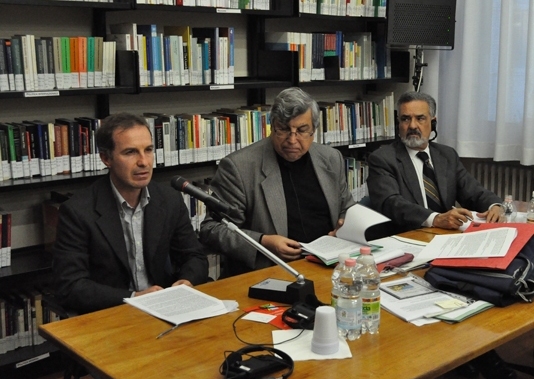Council of Europe: ECRI publishes its 4th report on Italy

The European Commission against Racism and Intolerance of the Council of Europe (ECRI) published on 21 February 2012, a new report on Italy. ECRI's Chair ad interim, François Sant'Angelo, said that, while progress has been made in some areas, there is significant room for improvement in combating hate speech and protecting Roma and migrants from violence and discrimination.
Italy has now an effective legislation against discrimination and racist violence in sport. UNAR, the National Office against Racial Discrimination, is increasingly active. The courts have annulled a number of discriminatory measures taken by the Government and some mayors.
There is more racist discourse in politics; migrants, in particular, are regularly equated with insecurity. This reflects discriminatory policies (for example, several aspects of the "pacchetto sicurezza"). Although the most questionable measures have been abandoned, the impact on public attitudes is obvious. In some cases, there have been violent attacks against Roma and migrants.
Most Roma experience marginalisation, notwithstanding some municipalities' and regions' programmes for social inclusion. Even legal settlements are relegated far from urban centres. As for illegal settlements, their demolition and forced evictions have resulted in increased discrimination in everyday life.
Despite progress made in the field of asylum, the pushback ("respingimento") policy of returning to their country of origin boats intercepted on the open sea between Italy and Libya, which was introduced in May 2009, appears to have deprived individuals of the possibly of applying for international protection. There have been problems also following the events in North Africa in early 2011: excessively rapid returns and poor reception conditions.
Anti-Muslim prejudice and antisemitims persist and private landlords reportedly discriminate against vulnerable groups.
In its report, ECRI has made a number of recommendations, among which the following three require priority implementation and will be revisited in two years' time:
- Give UNAR a more prominent role;
- Provide guarantees to all Roma who are evicted from their homes;
- Respect the principle of non-refoulement.
The report is available at the ECRI website in English and in Italian. It was prepared following ECRI's contact visit to Italy in November 2010 and takes account of developments up to June 2011.
ECRI is a human rights body of the Council of Europe, composed of independent experts, which monitors problems of racism, discrimination on grounds of ethnic origin, colour, citizenship, religion and language, as well as xenophobia, antisemitism and intolerance, prepares reports and issues recommendations to member States.

